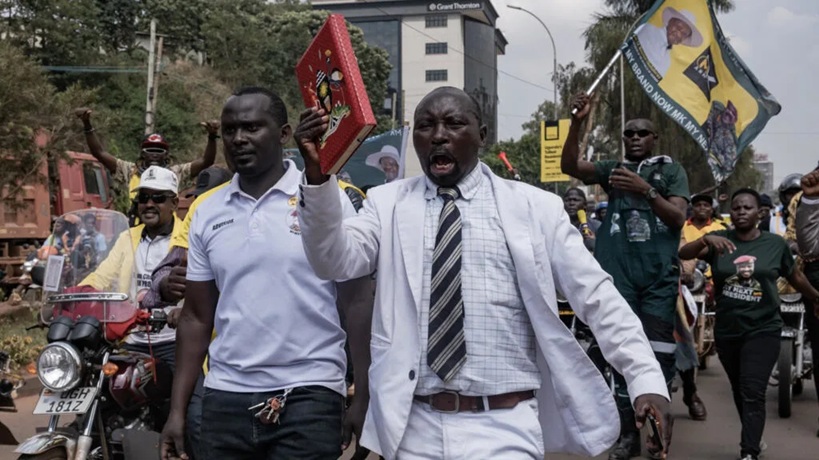Algerian president appoints new prime minister and energy minister
Uganda plans law to bring back military trials for civilians

FILE - Protesters at an anti-corruption demonstration in Kampala on 10 February 2025. [File photo: AFP]
Uganda’s government says it is planning to reintroduce military trials for civilians through a new law, despite a Supreme Court ruling in January that banned the practice.
The draft law is awaiting cabinet approval before being presented to parliament, Justice Minister Nobert Mao told lawmakers on Thursday.
He said the bill would define “exceptional circumstances under which a civilian may be subject to military law”.
The move has caused outcry in Uganda, with human rights activists calling the decision “insane” on social media.
NGOs and opposition politicians have long accused the government of President Yoweri Museveni of using military courts to prosecute opposition leaders and supporters on politically motivated charges – accusations the government denies.
Opponents detained
Museveni, 80, has been president of the Republic of Uganda since 1986. Under his regime, opponents have suffered repression for decades, including the former presidential candidates Kizza Besigye, 68, and Bobi Wine, 43.
Wine – whose real name is Robert Kyagulanyi Ssentamu, but who is known by his stage name – is an activist, singer and former MP. He has been arrested several times after campaigning for the presidency, first in 2021 then in 2023 and 2024.
Besigye, a veteran political rival of Museveni, has been in detention for nearly five months on what his lawyers say are politically motivated charges.
He was detained in neighbouring Kenya in November and subsequently transferred to Uganda, where he was charged in a military court martial with illegal possession of firearms among other offences.
On 11 April, he was denied bail by another Ugandan court, with the judge citing the heavy charges he faces and the ongoing investigation.
Supreme court ruling
In January, Uganda’s Supreme Court delivered a ruling banning military prosecutions of civilians, forcing the government to transfer the trial of Besigye to civilian courts.
This ruling had been prompted by several protests at delayed judgment in the ongoing trials of numerous opposition politicians and activists in Uganda’s General Court Martial.
This court is directly controlled by the Ugandan army and the president—a situation that undermines the concept of impartiality, according to the International Society for Human Rights.
“It is essential for the public and all advocates for democracy and the rule of law to join the court in urging the Ugandan government to implement the Supreme Court’s decision, drop all charges against individuals formerly charged by military courts, and release all prisoners still detained under the orders of these illegal military courts,” the NGO wrote in early February.
If enacted, the new law could allow the government to take Besigye back to a military court martial, as well as other opponents.













Leave a Reply
Be the First to Comment!
You must be logged in to post a comment.
You must be logged in to post a comment.